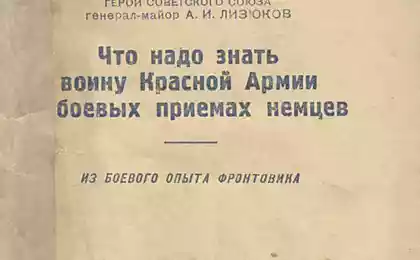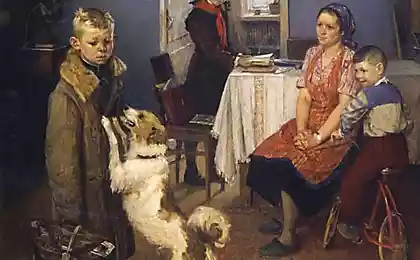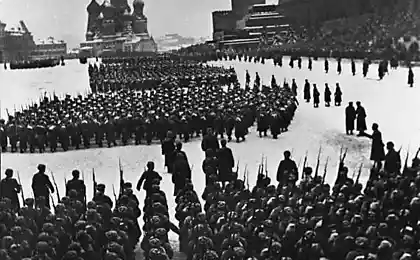286
What you can learn from German parents
I will not become a “typical German” mother, as well as a “typical Russian” mother.It has been eleven years since I have lived in Germany. But my parental experience is much less: my baby will turn eight months old this week. Like any expat with experience, I try to combine the old, the good, the familiar and the new that I liked in the new culture. That's what I want to share.
The Relaxation of German Parents
German parents do not “fly” around their children and do not go crazy from the slightest sneeze of the child. This behavior may seem like a cold detachment at first glance, but it is actually a well-thought-out pragmatism.
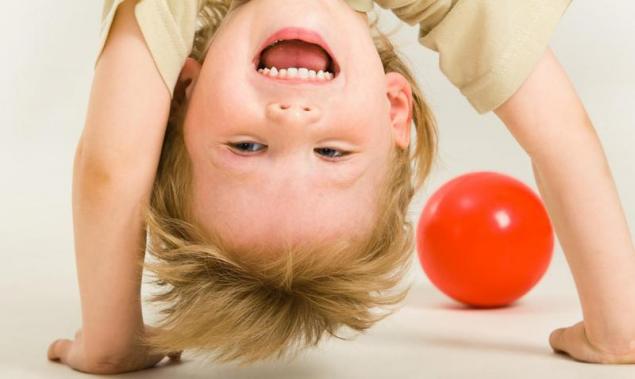
Every problem can be solved, and if not, you should not kill yourself. This idea underlies the mentality of Germans in general and German parents in particular. The baby fell nipple - the parent lifted it from the floor, slightly wiped and again gave the baby.
The baby does not eat a porridge of vegetables - you can try giving him small cut pieces from the same carrot or cracker. Parents who do not let their child step without twitching are derisively called “helicopter parents.”
The child does not need to be nurtured from morning to evening – he needs to be given a certain freedom, as well as the opportunity to “harden”.So, in German homes and institutions for children for quite a long time can be open window and no one will go crazy about what “blows!” ?
Socialization with diapers
Courses for mothers and babies exist for children from birth. These can be thematic seminars on the topic of nutrition and care of the child, as well as first aid. From about three to four and a half months you can enroll in courses where you can actively spend time with a crumb. These are called “crawling courses” (German Krabbelkurs).
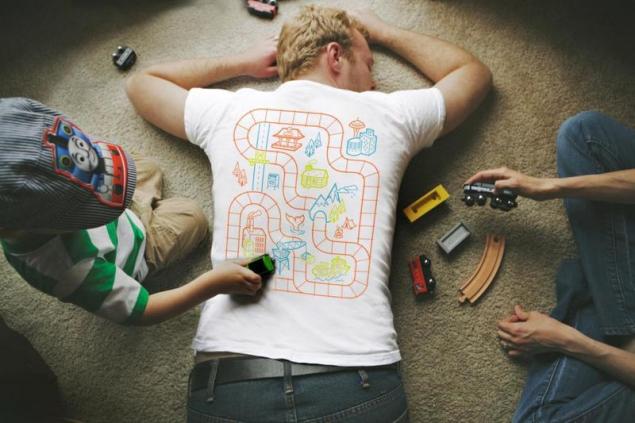
Parents and puppies gather in the same room. While toddlers try to crawl or just play with toys, parents exchange their problems and joys. From the teacher, they receive advice on how to observe the child and how to help him develop his abilities through movement and games. One of the well-known programs of this course is called PEKip and stands for the Prague System for Parents and Children. One of its features: the children lie and move naked in a well-heated room. After all, as you know, a baby without restrictive movements of clothes and a diaper is much more active.
Children also gain their first social skills by seeing, touching, and even communicating in their own way. The leader sings songs and tells poems, conducts cognitive games for children.But such a course is also a great emotional reliever for parents who understand that “not alone” with their problems and worries.
By the way, the most ordinary parents can organize this course at home, for example, alternately gathering several children and parents at home. A small mat, safe toys - that's all you need. And then – we sit in a circle around the children and start chatting, singing, reading, playing – here you can give free rein to fantasy.
There is another common course for kids: swimming. No, his goal is not to teach the carapuzics to swim breaststroke or butterfly.. We are talking about getting used to water and a little water gymnastics. One or both parents hold the child and perform exercises that the instructor shows. In the water there are all the same toys to entertain the baby, and the beginning and end of the lesson are accompanied by a song.
Mobility
German parents, a little accustomed to life with the baby, trying to quickly return to the “normal rhythm”. These are trips to visit, shops, parks, fairs, trips to cafes. Slings are very popular in Germany. For example, in the “crawling course” I go to, of the six parents, four use a sling and only two use a stroller (one is me).
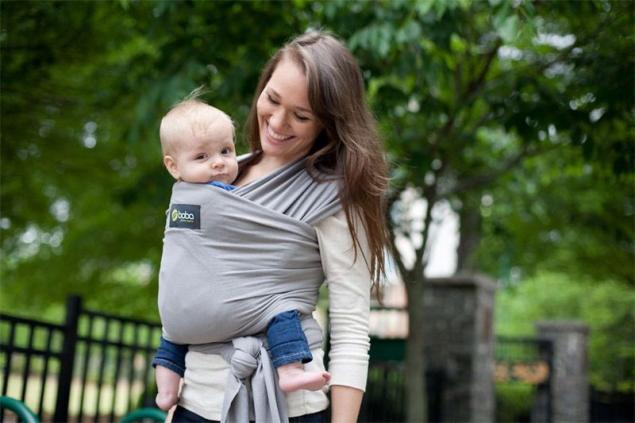
By the way, far travel with a baby is not a taboo for German parents, but rather a must have. I once cautiously asked the midwife, who visited us in the first two months after the birth of our baby (this service is voluntary, but fully paid for by health insurance) her opinion about our possible flight to Spain. Oh, she smiled, of course, fly. Here's another family I go to, going to New Zealand. It's so exciting! Another mother, whom I met at a feeding seminar, told me that she and her two-month-old baby and his father had traveled all summer in Germany in a “wonwagen” (Kemper) – a house on wheels, where in addition to the driver’s cabin there is a kitchen, bed and toilet.
Role of the father
A father in Germany willingly takes on "typical mammal duties" such as feeding, changing diapers, carrying. Very often you can see a man walking with a child in a wheelchair or in a sling. One. At this time, the mother works, takes care of another child or ... rests. On our crawling course there is a man who always brings a baby by himself. He's not a single father. Just he and his wife took maternity leave at the same time to care for a child (in Germany, this is possible and it does not need any reason, except the mutual desire of parents). This dad also informed us that his wife would soon go on a two-day holiday at the resort. He will be taking care of the child at home.
Environmental education
In Germany, the environment is taken very seriously. German parents prefer to buy eco-friendly clothing from materials like cotton and wool for their children.At the same time, clothes have a minimum of colors and jewelry – clothes should warm, no more. Many people prefer to buy previously used clothes – during washing the amount of chemicals on it decreases, which reduces the load on the sensitive skin of the child. There are groups on social networks to buy or exchange such clothes, as well as numerous flea markets. The same applies toys, books, wheelchairs and other baby accessories.
Frankly.
Being honest with yourself is another trait of parents in Germany. It's the courage to admit that you can't be the "perfect parent." The same dad from the course for babies confessed to us that “he is annoyed by the tedious and long feeding of the baby with a spoon,” as well as “the swaddling when the child breaks out, screams and crawls away from you.” Another mother admitted that she was burdened by breastfeeding (her daughter was about eight months old at the moment) and was going to stop breastfeeding as soon as possible. This does not mean that there is a distance between mother and daughter. Mother often holds her daughter in her arms, gently hugging. Just breastfeeding annoyed her - and she decided to stop it a couple of weeks ago. A happy child needs happy parents, not irritated and tired. And you need to periodically talk about what annoys you.
"Old, good, familiar."
In a new culture, you involuntarily adapt to the people around you, sometimes changing your attitude to things that have long been familiar. But the way your parents raised you remains deeply rooted in your consciousness.
When I feed the baby, I constantly say “and another spoon for my mother”, or “well done!”. I will always speak to my child in Russian, which is the best I can give her.
I read her Pushkin's fairy tales, Barto's poems or folk jokes. There are so many children's poems, jokes, finger games (and not only) in Russian! Sooner or later, from a German nanny or in kindergarten, my girl will discover a German “box of knowledge”. That way, she’ll have a broader outlook from a very early age than I once had – isn’t that beautiful?
By the way, the outlook: in Germany, parents do not much "soar" about it. The child here should not learn to write and read before school, in kindergartens children play most of the time, and “lessons” are not welcome.If your child knows about the planets of the solar system by the age of six, most German parents will look at them. This, as a rule, Russian parents - those who give their baby three to five mugs a week. Of course, I will not overdo it, but at this point I adhere to our Russian approach and will try to develop my child in different directions.
And in Russian culture is very rooted approach "all the best - children." And even among the many Russian-speaking people in Germany, this approach is still widespread. I also follow him: I try to cook fresh food for my child from environmentally friendly products, give her maximum free time. I understand that self-sacrifice is not my option, but I will not be completely relaxed, like German parents.
So, I will not send a baby out in the winter without a hat (as some parents in Germany do). Inflammation of the ear or meningitis that may follow is too expensive for me. Closer to me is the point of view of the “Soviet school” about hygiene – more is better than less. In Germany, for example, anyone can enter the ward for a newborn baby, including in dirty shoes and work clothes. It's too much in my mind. I also have a “Soviet” attitude towards vaccinations – I see more benefit than harm in them, so we do all the recommended vaccinations. In Germany, about 90% of parents and pediatricians think so, but you will always be stressed that the freedom of choice is yours.
The “good old” swaddling is becoming more and more fashionable in Germany. Pediatricians still do not advise swaddling babies all the time, but more and more mothers remember this method to calm the baby for a couple of hours.
Cultural wealth is not only music, poems, (cartoon) films. This applies even to food - Russian culture pleases with a wealth of cereals, soups, meat dishes. For example, buckwheat porridge in Germany was previously little known, and only some time ago began to be sold in some specialized stores or on the so-called “Russian shelves”. In German culture, a hot dish is eaten only once a day (in the evening it is limited to sandwiches) - in my family and many other Russian-speaking families it is customary to cook more often. No matter how convenient a cupcake from the store is, for me, it is more a “spare” remedy than daily food.
And even such a thing as traditional medicine is different in Germany. It takes place here, but, for example, bathing a baby in solutions of herbs is considered exotic. To this you can add a long list: inhalation over a pan, dousing for hardening, soaring legs with a cold ...
And there's another sweet Russian tradition I miss in Germany: meeting a newborn wrapped in a festive envelope with balloons and flowers. After all, German restraint - she welcomes you from birth, and often very lacks Russian festiveness and soulfulness.
In the modern world, thanks to the Internet, you can preserve your culture, even if you are very far from home. But it is not forbidden to use anything new that you like. This freedom of choice sometimes gives me a puzzle. But one thing is clear: I will not become a “typical German” mother, as well as a “typical Russian”. published
Author: Natalia Teplukhina
P.S. And remember, just by changing your consciousness – together we change the world!
Source: materinstvo.ru/art/12753
The Relaxation of German Parents
German parents do not “fly” around their children and do not go crazy from the slightest sneeze of the child. This behavior may seem like a cold detachment at first glance, but it is actually a well-thought-out pragmatism.

Every problem can be solved, and if not, you should not kill yourself. This idea underlies the mentality of Germans in general and German parents in particular. The baby fell nipple - the parent lifted it from the floor, slightly wiped and again gave the baby.
The baby does not eat a porridge of vegetables - you can try giving him small cut pieces from the same carrot or cracker. Parents who do not let their child step without twitching are derisively called “helicopter parents.”
The child does not need to be nurtured from morning to evening – he needs to be given a certain freedom, as well as the opportunity to “harden”.So, in German homes and institutions for children for quite a long time can be open window and no one will go crazy about what “blows!” ?
Socialization with diapers
Courses for mothers and babies exist for children from birth. These can be thematic seminars on the topic of nutrition and care of the child, as well as first aid. From about three to four and a half months you can enroll in courses where you can actively spend time with a crumb. These are called “crawling courses” (German Krabbelkurs).

Parents and puppies gather in the same room. While toddlers try to crawl or just play with toys, parents exchange their problems and joys. From the teacher, they receive advice on how to observe the child and how to help him develop his abilities through movement and games. One of the well-known programs of this course is called PEKip and stands for the Prague System for Parents and Children. One of its features: the children lie and move naked in a well-heated room. After all, as you know, a baby without restrictive movements of clothes and a diaper is much more active.
Children also gain their first social skills by seeing, touching, and even communicating in their own way. The leader sings songs and tells poems, conducts cognitive games for children.But such a course is also a great emotional reliever for parents who understand that “not alone” with their problems and worries.
By the way, the most ordinary parents can organize this course at home, for example, alternately gathering several children and parents at home. A small mat, safe toys - that's all you need. And then – we sit in a circle around the children and start chatting, singing, reading, playing – here you can give free rein to fantasy.
There is another common course for kids: swimming. No, his goal is not to teach the carapuzics to swim breaststroke or butterfly.. We are talking about getting used to water and a little water gymnastics. One or both parents hold the child and perform exercises that the instructor shows. In the water there are all the same toys to entertain the baby, and the beginning and end of the lesson are accompanied by a song.
Mobility
German parents, a little accustomed to life with the baby, trying to quickly return to the “normal rhythm”. These are trips to visit, shops, parks, fairs, trips to cafes. Slings are very popular in Germany. For example, in the “crawling course” I go to, of the six parents, four use a sling and only two use a stroller (one is me).

By the way, far travel with a baby is not a taboo for German parents, but rather a must have. I once cautiously asked the midwife, who visited us in the first two months after the birth of our baby (this service is voluntary, but fully paid for by health insurance) her opinion about our possible flight to Spain. Oh, she smiled, of course, fly. Here's another family I go to, going to New Zealand. It's so exciting! Another mother, whom I met at a feeding seminar, told me that she and her two-month-old baby and his father had traveled all summer in Germany in a “wonwagen” (Kemper) – a house on wheels, where in addition to the driver’s cabin there is a kitchen, bed and toilet.
Role of the father
A father in Germany willingly takes on "typical mammal duties" such as feeding, changing diapers, carrying. Very often you can see a man walking with a child in a wheelchair or in a sling. One. At this time, the mother works, takes care of another child or ... rests. On our crawling course there is a man who always brings a baby by himself. He's not a single father. Just he and his wife took maternity leave at the same time to care for a child (in Germany, this is possible and it does not need any reason, except the mutual desire of parents). This dad also informed us that his wife would soon go on a two-day holiday at the resort. He will be taking care of the child at home.
Environmental education
In Germany, the environment is taken very seriously. German parents prefer to buy eco-friendly clothing from materials like cotton and wool for their children.At the same time, clothes have a minimum of colors and jewelry – clothes should warm, no more. Many people prefer to buy previously used clothes – during washing the amount of chemicals on it decreases, which reduces the load on the sensitive skin of the child. There are groups on social networks to buy or exchange such clothes, as well as numerous flea markets. The same applies toys, books, wheelchairs and other baby accessories.
Frankly.
Being honest with yourself is another trait of parents in Germany. It's the courage to admit that you can't be the "perfect parent." The same dad from the course for babies confessed to us that “he is annoyed by the tedious and long feeding of the baby with a spoon,” as well as “the swaddling when the child breaks out, screams and crawls away from you.” Another mother admitted that she was burdened by breastfeeding (her daughter was about eight months old at the moment) and was going to stop breastfeeding as soon as possible. This does not mean that there is a distance between mother and daughter. Mother often holds her daughter in her arms, gently hugging. Just breastfeeding annoyed her - and she decided to stop it a couple of weeks ago. A happy child needs happy parents, not irritated and tired. And you need to periodically talk about what annoys you.
"Old, good, familiar."
In a new culture, you involuntarily adapt to the people around you, sometimes changing your attitude to things that have long been familiar. But the way your parents raised you remains deeply rooted in your consciousness.
When I feed the baby, I constantly say “and another spoon for my mother”, or “well done!”. I will always speak to my child in Russian, which is the best I can give her.
I read her Pushkin's fairy tales, Barto's poems or folk jokes. There are so many children's poems, jokes, finger games (and not only) in Russian! Sooner or later, from a German nanny or in kindergarten, my girl will discover a German “box of knowledge”. That way, she’ll have a broader outlook from a very early age than I once had – isn’t that beautiful?
By the way, the outlook: in Germany, parents do not much "soar" about it. The child here should not learn to write and read before school, in kindergartens children play most of the time, and “lessons” are not welcome.If your child knows about the planets of the solar system by the age of six, most German parents will look at them. This, as a rule, Russian parents - those who give their baby three to five mugs a week. Of course, I will not overdo it, but at this point I adhere to our Russian approach and will try to develop my child in different directions.
And in Russian culture is very rooted approach "all the best - children." And even among the many Russian-speaking people in Germany, this approach is still widespread. I also follow him: I try to cook fresh food for my child from environmentally friendly products, give her maximum free time. I understand that self-sacrifice is not my option, but I will not be completely relaxed, like German parents.
So, I will not send a baby out in the winter without a hat (as some parents in Germany do). Inflammation of the ear or meningitis that may follow is too expensive for me. Closer to me is the point of view of the “Soviet school” about hygiene – more is better than less. In Germany, for example, anyone can enter the ward for a newborn baby, including in dirty shoes and work clothes. It's too much in my mind. I also have a “Soviet” attitude towards vaccinations – I see more benefit than harm in them, so we do all the recommended vaccinations. In Germany, about 90% of parents and pediatricians think so, but you will always be stressed that the freedom of choice is yours.
The “good old” swaddling is becoming more and more fashionable in Germany. Pediatricians still do not advise swaddling babies all the time, but more and more mothers remember this method to calm the baby for a couple of hours.
Cultural wealth is not only music, poems, (cartoon) films. This applies even to food - Russian culture pleases with a wealth of cereals, soups, meat dishes. For example, buckwheat porridge in Germany was previously little known, and only some time ago began to be sold in some specialized stores or on the so-called “Russian shelves”. In German culture, a hot dish is eaten only once a day (in the evening it is limited to sandwiches) - in my family and many other Russian-speaking families it is customary to cook more often. No matter how convenient a cupcake from the store is, for me, it is more a “spare” remedy than daily food.
And even such a thing as traditional medicine is different in Germany. It takes place here, but, for example, bathing a baby in solutions of herbs is considered exotic. To this you can add a long list: inhalation over a pan, dousing for hardening, soaring legs with a cold ...
And there's another sweet Russian tradition I miss in Germany: meeting a newborn wrapped in a festive envelope with balloons and flowers. After all, German restraint - she welcomes you from birth, and often very lacks Russian festiveness and soulfulness.
In the modern world, thanks to the Internet, you can preserve your culture, even if you are very far from home. But it is not forbidden to use anything new that you like. This freedom of choice sometimes gives me a puzzle. But one thing is clear: I will not become a “typical German” mother, as well as a “typical Russian”. published
Author: Natalia Teplukhina
P.S. And remember, just by changing your consciousness – together we change the world!
Source: materinstvo.ru/art/12753


